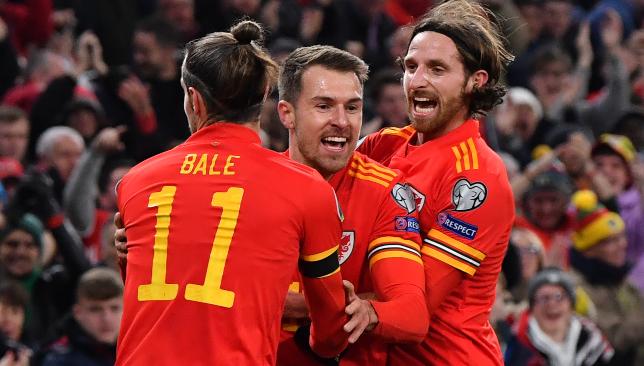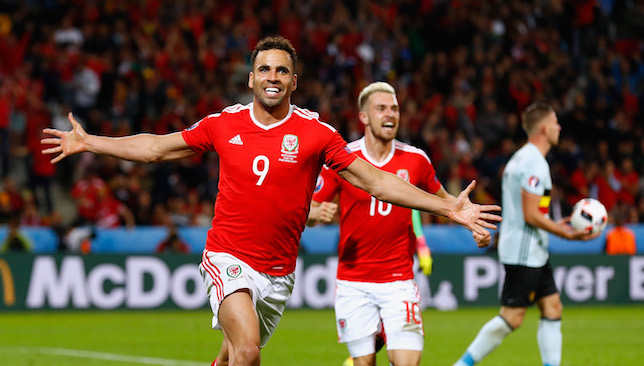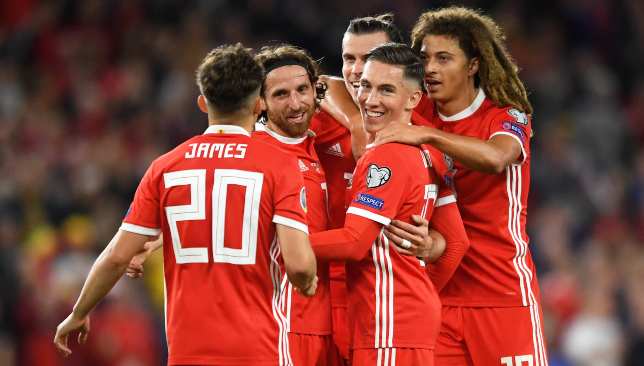
Pride and passion were the overriding emotions emitted at the full-time whistle in Cardiff.
But, underneath, a huge undercurrent of relief flowed through every Welsh football fan.
Euro 2016 was life-affirming, even life-changing for the Dragons and their followers. For the most part, though, history is not filled with the glorious scaling of heights, but more crippling failure and soul-destroying heartache.
Qualification to what is now a third major tournament in history masks a painful past in which they have, almost routinely, come tantalisingly close to pushing a seat up to international football’s top table before being left standing alone without a chair when the music stops.
Although the recent past is remembered fondly by many fervent Wales followers, the nation’s international football past is largely tangled in pain and misery.
Just making it to the European Championships in France three summers ago was reason for joyous celebration. It was, quite unbelievably, the first time they’d played finals football since a certain 17-year-old called Pele scored the only goal to dump the Dragons out of the World Cup in Sweden… 58 years earlier.
And then, all expectations were surpassed – as well as the exploits of that brilliant 1958 team – when they battered Belgium’s brilliant and bewitching list of stars 3-1 to reach the Euro 2016 semi-finals.

Wales enjoyed their most glorious night against Belgium at Euro 2016 – a feeling that has been so alien.
But, almost inevitably, unimaginable high was followed by another crushing low and the all too familiar feeling of disappointment.
They hardly electrified 2018 World Cup qualifying as they had France. Chris Coleman’s men only lost once in 10 games but it was their five draws and a lack of cutting edge that would eventually cost them, and that sole defeat, which came on the final matchday.
A thoroughly uninspiring 1-0 home defeat by one of the worst Republic of Ireland sides in recent memory.
The feel-good factor disappeared in an instant.
It was replaced by disappointment, but it was a dull ache compared to the gaping wounds suffered in Wales’ two worst moments.
Failure to make the 1994 World Cup in America ranks as arguably the most painful for Wales fans.
They needed to beat Romania in Cardiff in their final group game in November 1993 to make it to USA ’94.
With half an hour to go and the score 1-1, the Welsh were awarded a penalty. Viewing figures increased from 2.2 to 12.9 million after the BBC switched their coverage of England v San Marino, with Wales the only home nation in with a shot of qualifying.
The bloated audience tuned in just in time to see Swindon Town left-back Paul Bodin smash his spot kick off the bar. Florin Raducioiu’s winner rubbed salt in the wound.
Fast forward 10 years when they lost 1-0 in the Euro 2004 qualifying play-offs to Russia. After a goalless draw in Moscow, Wales were left frozen by right-back Vadim Evseev’s 21st minute header in the second leg, and the icy chill of exile from the elite international arena stretched further.
What made that failure even more bitter was the fact the result was allowed to stand despite Russia midfielder Igor Titov failing a drug test after the first leg. He played in the second. The Welsh FA had asked the Court of Arbitration for Sport (CAS) to cancel the result and award Wales a 3-0 win on aggregate.
All their appeals were rejected, and so it seemed they were destined to be shunned forever.
So you can see why two back-to-back 2-0 victories against Azerbaijan and Hungary in their final Euro 2020 qualifiers seems almost too easy for many supporters clad in red to comprehend.
The composed, calm and relatively straightforward nature in which Wales eventually qualified almost stole attention away from just how obstructed the road to Euro 2020 has been.

Wales have an exciting wave of young talent – being led by Bale, Ramsey and Allen.
Wales lost two of their opening three games. The fanfare around Ryan Giggs’ appointment had well and truly died down.
He may have been a sublimely decorated player, but his Wales record looked decidedly bleak and bare. Fourteen games played: six wins, a draw and seven defeats.
His call to overhaul the heroes of Euro 2016 and usher in a new exciting, youthful era was certainly bold and gave us a peak at a packed young stable of emerging talent. Although defeats to Croatia and Hungary showed a game-plan and style of play glaringly lacking and his young bucks were outgunned.
Now, they are unbeaten in their last five, with three wins and two draws. Giggs won 13 Premier League titles, four FA Cups and two Champions Leagues at Manchester United. And yet, after Tuesday’s game, he beamed: “It is one of the greatest nights of my life. Simple as that.”
A lot of the stalwarts of the greatest story Welsh football ever told three summers ago are now out of the picture, or on the fringes. Three remain though and it was fitting that Gareth Bale, Aaron Ramsey and Joe Allen – the three musketeers – were all immense in victory against Hungary.
Bale (30), Ramsey (28) and Allen (29) are, just, in their prime. Those three spearhead an exciting new wave that includes the likes of Harry Wilson, Daniel James, Ethan Ampadu, Connor Roberts, Chris Mepham, Joe Rodon and David Brooks.
Now, with back-to-back European Championship appearances secured, this could be a new dawn for the Dragons.
Euro 2016 seemed an anomaly. But football to watch next summer suggests the standard is changing and regular major tournament appearances might now become the norm.